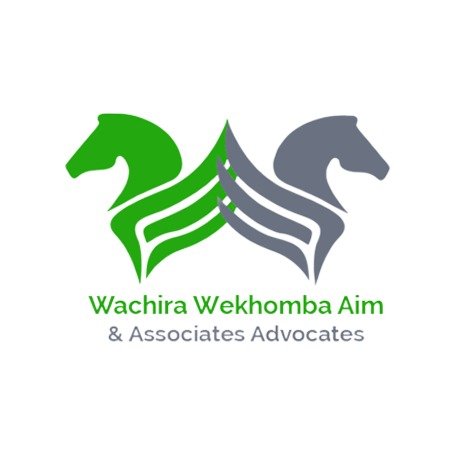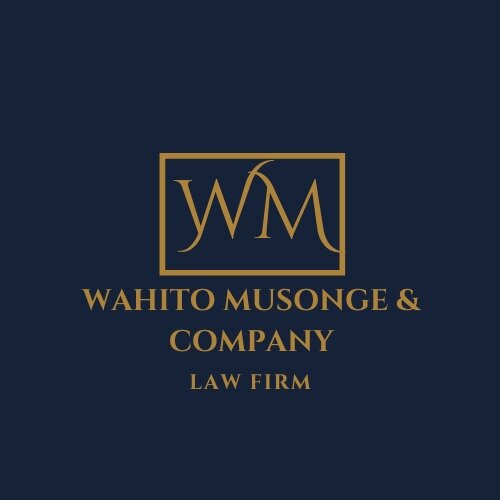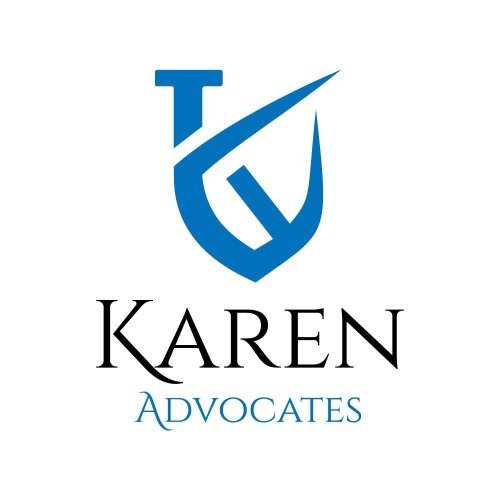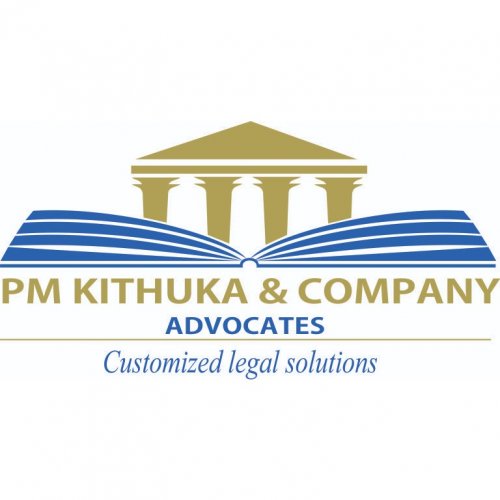Best Workers Compensation Lawyers in Kenya
Share your needs with us, get contacted by law firms.
Free. Takes 2 min.
Or refine your search by selecting a city:
List of the best lawyers in Kenya
Kenya Workers Compensation Legal Articles
Browse our 1 legal article about Workers Compensation in Kenya written by expert lawyers.
- Understanding Kenyan Employment Law: A Guide for Small Businesses
- Kenya's vibrant small business ecosystem is a critical driver of the country's economic growth, but navigating the complex landscape of employment law can be challenging for entrepreneurs. Whether you're a local startup founder or a foreign investor looking to establish a business in Kenya, understanding the legal framework surrounding employment... Read more →
About Workers Compensation Law in Kenya
Workers Compensation in Kenya provides a framework for compensating employees who suffer work-related injuries and occupational diseases during the course of their employment. Governed primarily by the Work Injury Benefits Act (WIBA) of 2007, the law mandates employers to compensate workers either through insurance or directly. The aim is to ensure that employees who are injured at work receive timely financial compensation and medical care, thereby safeguarding their well-being and economic stability without the need for protracted litigation.
Why You May Need a Lawyer
While the workers' compensation process is designed to be straightforward, several scenarios may necessitate legal assistance:
- Disputes over the validity of a claim, such as whether an injury is work-related.
- Underpayment or denial of benefits by the employer or insurance provider.
- Complex cases involving severe injuries or occupational diseases with long-term impacts.
- Navigating appeals processes, should an initial claim be rejected.
- Understanding the full extent of rights and entitlements under the Work Injury Benefits Act.
Local Laws Overview
The key legal framework for Workers Compensation in Kenya is the Work Injury Benefits Act (WIBA), 2007. This legislation requires employers to obtain insurance policies covering their workers against injuries or diseases contracted during employment. Employers must notify the Director of Occupational Safety and Health Services within 24 hours of an injury, and employees have a right to report injuries personally. Compensation calculations are based on the severity of the injury, with specific provisions for temporary disability, permanent disability, and fatal accidents.
Frequently Asked Questions
What does Workers Compensation cover?
Workers Compensation covers medical expenses, loss of earnings, and rehabilitation costs. In some cases, it also provides compensation for permanent disability or death benefits to the dependents of a deceased employee.
How do I file a claim for Workers Compensation?
You should notify your employer immediately, seek medical attention, and ensure all reports are documented accurately. The employer is then responsible for submitting the claim to the respective insurance company or the Directorate of Occupational Safety and Health Services.
What happens if my employer does not have Workers Compensation insurance?
It is a legal requirement for employers to have insurance coverage. If an employer is found non-compliant, they may face legal penalties, and you may file a complaint with the Directorate of Occupational Safety and Health Services.
Can I sue my employer for a work-related injury?
Under WIBA, employees are not allowed to sue employers in civil court for injuries covered under the Act. However, if there is evidence of negligence or malice beyond what WIBA covers, it is possible to explore additional legal avenues.
Is there a time limit to file a Workers Compensation claim?
Yes. Claims should typically be filed within a year of the accident or discovery of an occupational disease.
What if my Workers Compensation claim is denied?
You have the right to appeal the decision. Engaging a lawyer early can help navigate the appeals process successfully.
Are all injuries at work covered by Workers Compensation?
Only injuries related to your employment are covered. Self-inflicted injuries, or those arising from negligence on part of the employee, might not be covered.
Can I receive Workers Compensation benefits while returning to work?
Yes, in cases where you return to work on a limited basis or in a modified role, you may still receive benefits to compensate for any reduced earning capacity.
How are death benefits distributed?
Compensation in the event of death includes funeral expenses and a lump sum to the dependents, calculated based on the deceased's earnings.
What role does the Directorate of Occupational Safety and Health Services play?
The Directorate oversees and enforces safety and health regulations in workplaces. They also handle claims and disputes under WIBA.
Additional Resources
Consider consulting the following resources for more information:
- Directorate of Occupational Safety and Health Services: The primary government body managing and overseeing issues related to workers' compensation.
- Federation of Kenya Employers (FKE): Provides resources and support to employers on handling workers' compensation claims.
- The Kenya National Commission on Human Rights (KNCHR): Can offer guidance on ensuring workers' rights are protected.
- Legal Aid Centre of Eldoret (LACE): Provides legal aid services for workers seeking assistance with compensation claims.
Next Steps
If you need legal assistance in Workers Compensation, consider the following steps:
- Document Everything: Keep detailed records of all communications, medical reports, and expenses related to your injury or illness.
- Seek Legal Counsel: Engage with a lawyer who specializes in workers' compensation cases to review your situation and advise on the best course of action.
- Contact Relevant Authorities: If you encounter issues with your employer, promptly contact the Directorate of Occupational Safety and Health Services to report non-compliance or seek guidance.
- Stay Informed: Keep abreast of any changes to laws or procedures related to workers' compensation in Kenya.
- Consider Mediation: If disputes arise, mediation may offer a quicker, less adversarial means of reaching a resolution compared to formal legal proceedings.
Lawzana helps you find the best lawyers and law firms in Kenya through a curated and pre-screened list of qualified legal professionals. Our platform offers rankings and detailed profiles of attorneys and law firms, allowing you to compare based on practice areas, including Workers Compensation, experience, and client feedback.
Each profile includes a description of the firm's areas of practice, client reviews, team members and partners, year of establishment, spoken languages, office locations, contact information, social media presence, and any published articles or resources. Most firms on our platform speak English and are experienced in both local and international legal matters.
Get a quote from top-rated law firms in Kenya — quickly, securely, and without unnecessary hassle.
Disclaimer:
The information provided on this page is for general informational purposes only and does not constitute legal advice. While we strive to ensure the accuracy and relevance of the content, legal information may change over time, and interpretations of the law can vary. You should always consult with a qualified legal professional for advice specific to your situation.
We disclaim all liability for actions taken or not taken based on the content of this page. If you believe any information is incorrect or outdated, please contact us, and we will review and update it where appropriate.
Browse workers compensation law firms by city in Kenya
Refine your search by selecting a city.














